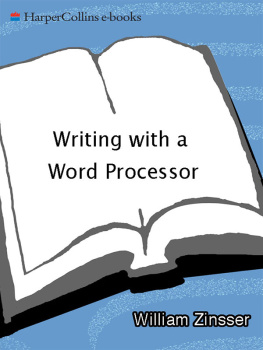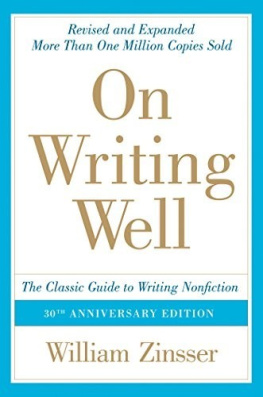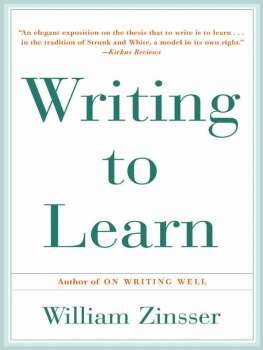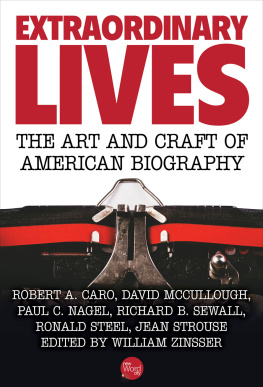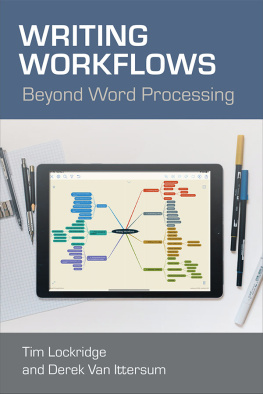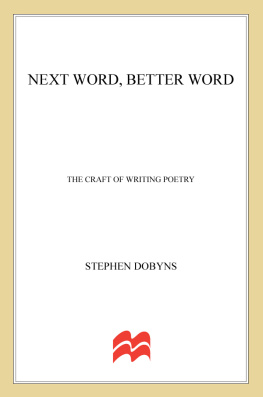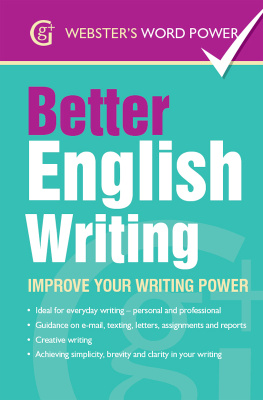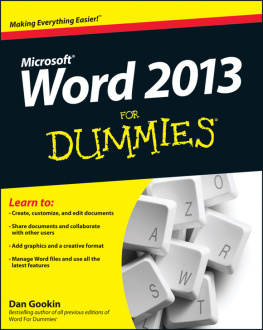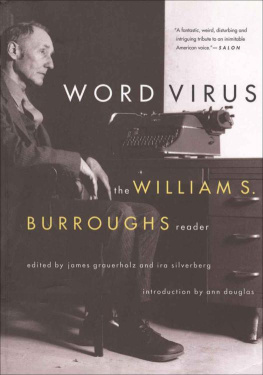. Personal Baggage
. Entering the Future
. A Shopping Trip
. Four Hang-ups
. It Arrives
. Eyestrain
. Privacy
. The Day It Happened
. Some Precautions
. More Troubles
. Disks
. The Keyboard
. Pagination
. Printing
. Progress Report
. The Act of Writing: One Mans Method
. The Act of Writing: Other Methods
. The Final Step
Maybe Im not the last person in the world who would be expected to write with a word processor, but Im one of the last. I belong to a generation of writers and editors who think of paper and pencil as holy objects. I taught myself to type at the age of ten and ever since have been banging out words onto paper, and then crossing them out and penciling other words in, and then retyping what I had revised. The feel of paper is important to me. I have always thought that a writer should have physical contact with the materials of his craft that he should be able to spread out his notes and his early drafts and to work on them with his sacred pencil.
So how does it happen that I find myself tapping out these words on a computer keyboard and watching them appear on a terminal screen? The screen is black and the words are green hardly my usual colors and I have no paper anywhere. I have separated myself from paper. Im wholly in the hands of a machine. I dont even like machines. I am not mechanical. I dont understand how mechanical objects work, and I cant fix things with my hands. I never was the typical American boy who had to have the latest gadget. Gadgets fluster me. I cant open a childproof medicine bottle. I never know which button to push or is it pull? at the laundromat. I cant even tell where to insert the coin in a Coke machine; kind strangers help me out as I try to wedge a quarter into some chrome device that appears to be a coin slot but isnt. They look at me with a mixture of pity and amazement.
Nor do I understand written instructions. Am I the only American car driver, for instance, who cant figure out how to heat or cool the car? The lever that operates this mechanism is in a slot that offers these choices: COOL, NORM-MAX, AVG, HI-LO, VENT and HEAT . How can one selection give me both HI and LO ? How does HI differ from HEAT , or from MAX ? What is VENT doing in this spectrum of temperatures? Who is NORM ? I have almost never found the right amount of heat for my car except by chance. The temperature somehow rises to MAX and I open all the windows to compensate. Surely this is not what Detroit had in mind.
For such a mechanical boob to decide to write on a word processor would seem to be a sure invitation to despair. The word processor is, after all, a computer, and most people are scared of computers. Most people are also scared of the act of writing; even the professional writer faces his daily task with a nervousness that never quite goes away. I didnt know what would happen when the fear of computers got combined with the fear of writing. But I did know that the word processor was here to stay. And I knew that if I could master it, anybody could.
I first realized that the act of writing was about to enter a new era five years ago when I went to see an editor at The New York Times . As I was ushered through the vast city room I felt that I had strayed into the wrong office. The place was clean and carpeted and quiet. As I passed long rows of desks I saw that almost every desk had its own computer terminal and its own solemn occupant a man or a woman typing at the computer keyboard or reading what was on the terminal screen. I saw no typewriters, no paper, no mess. It was a cool and sterile environment; the drones at their machines could have been processing insurance claims or tracking a spacecraft in orbit. What they didnt look like were newspaper people, and what the place didnt look like was a newspaper office.
I knew how a newspaper office should look and sound and smell I worked in one for thirteen years. The paper was the New York Herald Tribune , and its city room, wide as a city block, was dirty and disheveled. Reporters wrote on ancient typewriters that filled the air with clatter; copy editors labored on coffee-stained desks over what the reporters had written. Crumpled balls of paper littered the floor and filled the wastebaskets failed efforts to write a good lead or a decent sentence. The walls were grimy every few years they were painted over in a less restful shade of eye-rest green and the atmosphere was hazy with the smoke of cigarettes and cigars. At the very center the city editor, a giant named L. L. Engelking, bellowed his displeasure with the days work, his voice a rumbling volcano in our lives. I thought it was the most beautiful place in the world.
I had always wanted to be a newspaperman, and the Herald Tribune was the newspaper I wanted to be a man on. As a boy I had been reared on the Trib, and its Bodoni Bold headlines and beautiful makeup fixed themselves early in my mind as exactly how a newspaper should present itself to the world. The same mixture of craftsmanship and warmth ran through the writing. A Herald Tribune story always had some extra dimension of humor or humanity, or surprise, or graceful execution, that didnt turn up in other papers. The people who put this paper together obviously worked with care and loved the work. My dream was to be one of them.
As a teenager I wrote for the school newspaper and learned to set type at the local shop where the paper was printed. The afternoons I spent there were some of the happiest of my boyhood. I loved the smell of the ink and the clacking of the linotype machines. I liked being part of a physical process that took what I wrote and converted it into type and locked it in a frame and put it on a press and printed it for anybody to read. One Christmas I asked my parents for a printing press a wish that they must have regretted granting, for it was installed in the attic, directly over their room, and the house shook at night with irregular thumps as I fed paper into the press and pulled its huge handle down. I bought books on type and studied the different typefaces, learning how type cutters and printers over the centuries had shaped the letters to achieve legibility and a certain emotional weight.
At college I was editor of a campus magazine, and I hung around the university press where it was composed and printed. I was hooked on a tradition. Even when I left college during World War II to enlist in the army I didnt escape the process of getting the days events validated on paper. Colonel McCloskey, finding a captive writer (and a mere sergeant) in his midst, took no chance that his feats of command might go unrecorded. He commanded me to write the company history, and, sitting in a wintry tent in Italy with an old typewriter and a lot of paper, I did.
After the war when I went looking for a job I inevitably went looking at the Herald Tribune , and when I heard George Cornish, the managing editor, offering to hire me as a beginning reporter at forty-five dollars a week I considered myself as rich as Rockefeller. Well, almost. The paper in those first postwar years was a constellation of journalists at the top of their form. I still remember the routine excellence of the local reporters and foreign correspondents and the elegance of the critics and columnists: Virgil Thomson, Red Smith, Walter Lippmann and many others. It was a paper whose editors coveted good writing. Not only did they publish the best writers; they cultivated good writing in younger members of the staff by showing that they cared. Those older men who made us rewrite what we had written and rewritten werent doing it only for our own good but for the honorableness of the craft. They were custodians of a trust.

